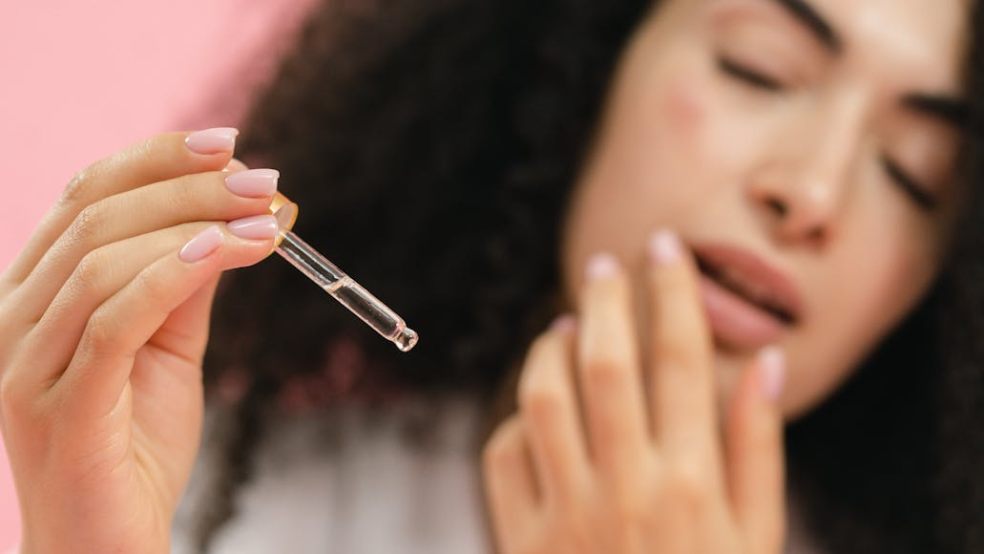
Is Argan Oil Good for Sensitive Skin? Here’s What You Need to Know
If you have sensitive skin, you know how frustrating it can be to manage breakouts, flare-ups, and irritation. But thanks to argan oil for skin, your skin can feel calm, hydrated, and healthy again. There’s a reason why skincare experts swear by this nourishing ingredient. It’s lightweight, hydrating, and full of powerful components that make your skin glow with health. Even Cheryl Cole uses this oil for her skin and hair. For those looking to enhance anti-ageing effects, Argan Oil + Vitamin E Nourishing & Anti-Aging Blend for All Skin Types is a powerful product that combines the benefits of this natural oil with clinically backed bio-active compounds. Let’s learn more about the amazing benefits of using argan oil for skin.
How Argan Oil Benefits Your Skin
Hydrates Your Skin
This golden oil comprises essential fatty acids like linoleic and oleic acids that strengthen the skin barrier, which helps lock in moisture and prevent it from escaping. As a result, your skin remains supple and smooth.
Prevents Breakouts
This natural moisturizer is non-comedogenic, meaning it doesn’t clog pores or cause breakouts. Most people link facial oils with making oily skin oilier, but that’s not true. Natural face oils control sebum production and regulate oiliness.
Soothes Irritation
This oil contains ferulic acid and polyphenols that calm skin irritation and banish redness.
Protects from Environmental Damage
Rich in vitamin E, this oil helps protect the skin from environmental damage and promotes healing. According to a 2013 study, Moroccan women use it to shield their skin from sun exposure. The antioxidants present in the formula fight free radical damage caused by the sun. This helps prevent hyperpigmentation and skin cancer in the long run. (1)
A Note on Sensitive Skin and Brightening
People with sensitive skin need skincare that’s not just gentle, but also effective. If you’re searching for a face oil for sensitive skin, or something that supports a glowing, even-toned look, choosing the right product makes all the difference. A great option is the Calmmm™ Soothing & Rejuvenating For Red Irritated skin. This formula is designed to brighten dull skin without irritation, while also supporting the skin’s natural protective layer with calming ingredients.
How to Use Argan Oil for Sensitive Skin?
Here’s how to apply argan oil to your face:
- Wash your face with cold water using a gentle face wash to make it thoroughly clean.
- Pat your face dry. Do not rub your face as it may irritate your skin. Leave your skin slightly damp.
- Take 2–3 drops of oil and apply to your face.
- Gently massage in a circular motion and make sure you evenly spread it.
- Allow the oil to absorb fully into your skin.
- Do this process once a day for instant results.
Note: Always do a patch test first, especially if you have sensitive skin. This protects your skin from further damage.
Final Thoughts
This natural elixir is indeed a miraculous remedy for sensitive skin. It nourishes, hydrates, and heals while helping prevent breakouts and flare-ups. While it’s generally safe for use, you must always do a patch test first to be safe.
FAQs
1. Is argan oil okay for sensitive skin?
Yes, it is one of the best options as it’s lightweight, gentle, and non-comedogenic. This means it doesn’t irritate your skin and absorbs easily.
2. Which skin type is argan oil best for?
It can be used on all skin types — whether dry, oily, sensitive, or combination skin.
3. Can I use it daily on my face?
Yes, many people with sensitive or dry skin find that using it once daily keeps their skin hydrated without feeling greasy.
4. Is it okay to wear under makeup?
If you let it fully absorb into your skin first, this oil creates a smooth base — almost like a natural primer.
5. Should I apply face oil on wet or dry skin?
It’s best to apply it on slightly damp skin after cleansing. This helps lock in extra moisture.
6. Does it help with redness or irritation?
Yes, its natural antioxidants and vitamin E can calm inflammation and reduce redness when used regularly.
7. Is face oil safe for acne-prone skin?
It depends on the oil. Since this one is non-comedogenic, it won’t clog pores — just make sure to patch test first.
8. Can I mix it with my regular moisturizer?
Yes, you can blend a few drops into your moisturizer to boost hydration without adding extra steps.
9. How long does it take to see results?
Most people notice softer, more hydrated skin within a week. For issues like dullness or irritation, it may take 2–3 weeks.
10. Does it reduce fine lines or wrinkles?
It can help soften the appearance of fine lines over time due to its hydrating and antioxidant properties.
11. Is it safe to use around the eyes?
Yes, but only use a tiny amount and gently dab it in — avoid getting too close to the eyes.
12. What’s the best time to use it — morning or night?
Nighttime is ideal, but if you use a small amount in the morning, it can protect your skin during the day too.
13. Can I use face oil even if I have oily skin?
Yes. In fact, oils like this help regulate sebum production, which can actually balance oily skin over time.
14. Is it okay to use during pregnancy?
It is generally considered safe, but always check with your doctor to be sure.
15. Does it expire?
Yes — natural oils like this should be used within 6–12 months once opened. Store in a cool, dry place.
Sources:













